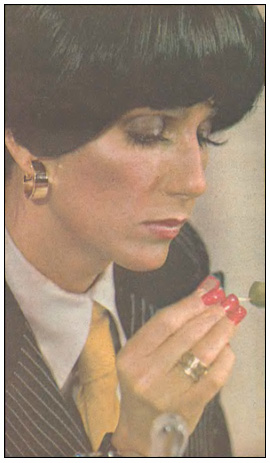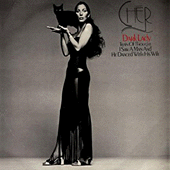- Home
- Introduction, Update Information, Links
- The Super Seventies "Classic 500"
- Readers' Favorite Seventies Albums
- Seventies Single Spotlight
- The Top 100 Seventies Singles
- Favorite Seventies Artists In The News
- Seventies Almanac - Year By Year
- Seventies Singles - Month By Month
- Seventies Albums - Month By Month
- Seventies Daily Music Chronicle
- Seventies Superstars In Their Own Words
- The Super Seventies Archives
- Seventies Trivia Quizzes & Games
- Seventies MIDI Jukebox
- The Super Seventies Bookstore
- The Super Seventies Photo Gallery
- Seventies' Greatest Album Covers
- Popular Seventies Movies & TV
- Seventies Celebrity Portrait Gallery
- Seventies Lyrics Hit Parade
- Top Seventies Artist Music Videos
- Seventies Usenet Music Forums
- Seventies Smiley Calendar
- EXTRA!
- Superseventies.com Facebook Page
- Superseventies.com Reddit Discussions
- The Super Seventies Blog
- Tweet The Seventies
- RockSite InfoBank
- Beatlefan Site
- Thanks For Your Support! / Top Sellers
- Search The Rock Site/ The Web
Cher
MCA 40161
March 1974
Billboard: #1

![]() fter the chart successes of "Gypsy, Tramps & Thieves"
and "Half-Breed,"
producer Snuff Garrett went to the story-song well one more time and came up with "Dark Lady," a third number one single for Cher. John Durrill wrote it and recorded a demo for Snuff just before leaving for a tour of Japan with the Ventures. Listening to the song repeatedly, Snuff was unhappy with the third verse.
fter the chart successes of "Gypsy, Tramps & Thieves"
and "Half-Breed,"
producer Snuff Garrett went to the story-song well one more time and came up with "Dark Lady," a third number one single for Cher. John Durrill wrote it and recorded a demo for Snuff just before leaving for a tour of Japan with the Ventures. Listening to the song repeatedly, Snuff was unhappy with the third verse.
"She caught her boyfriend with the soothsayer (the dark lady of the title), and I decided she had to kill him. I couldn't find John. I called his booking agency and they said he was in Kyoto. I finally got a long distance call and heard a muffled voice on the other end -- it was John calling from Japan. He said, 'You wanted me?' I said, 'Kill him! I want him dead in the third verse. You've got to send me new lyrics by telegram!'"

It was during the chart life of "Dark Lady" that Sonny and Cher's marital problems became public knowledge. They were still starring in a weekly variety series for CBS, taking pot shots at each other during the opening of each show. "The only difficult period I had with Cher was when we were still married," Sonny concedes. "We had split up, but we were pretending to be happily married with a kid. That was rough. After that, it was not rough at all."
Two days after their divorce became final, Cher married Gregg Allman. It was a stormy union, although it survived Cher's filing for divorce nine days after the marriage. Cher moved from MCA to Warner Brothers Records, where her recordings ranged from singles produced by Phil Spector (including a duet with Harry Nilsson) to an album of duets with husband Gregg.
Her marriage to Gregg did come to an end eventually and she was later romantically linked with Gene Simmons of Kiss and rock musician Les Dudek, with whom she formed a rock band called Black Rose. They recorded one album, which failed to gain exposure on radio.
Cher had one more top 10 single in the decade, "Take Me Home," a disco-oriented track released on Casablanca Records which went to number eight in May, 1979.
After their divorce, Sonny and Cher had their own individual television series. The Sonny Comedy Revue debuted on ABC on September 22, 1974, and ran only until December 29. Cher, a variety series with the emphasis on music, made its debut on CBS February 16, 1975. Its final telecast was January 4, 1976. A month later, a revived Sonny and Cher series returned to CBS in the same time period as Cher's show. They tried opening the show with the same put-downs that had marked their earlier, successful series , but as a divorced couple it just wasn't as funny. The Sonny and Cher Show disappeared from the network on August 29, 1977.
In the 1980s, Cher became most visible as an actress. She made her Broadway stage debut in "Come Back to the 5 and Dime, Jimmy Dean, Jimmy Dean," directed by Robert Altman. The play was filmed for motion picture release. She had already appeared in films like Good Times and Chastity, but the critics and public really took notice of her in Silkwood, and the Academy of Motion Picture Arts and Sciences justifiably rewarded her with an Oscar nomination as Best Supporting Actress.
Just before the release of her 1985 film Mask, Harvard University's Hasting Pudding Club named her "Woman of the Year," an honor previously bestowed on people like Katharine Hepburn, Angela Lansbury, Jane Fonda, Meryl Streep, Bette Midler and Joan Rivers.
"When you look at the people who have received this award, it's hard to take it less seriously," she said.
- Fred Bronson, The Billboard Book of Number One Hits,
Billboard, 1988.
![]() Reader's Comments
Reader's Comments
No comments so far, be the first to comment .
![]() Main Page
| Additional Singles Intro
| Singles By Month
| Seventies Almanac
| Search The RockSite/The Web
Main Page
| Additional Singles Intro
| Singles By Month
| Seventies Almanac
| Search The RockSite/The Web


